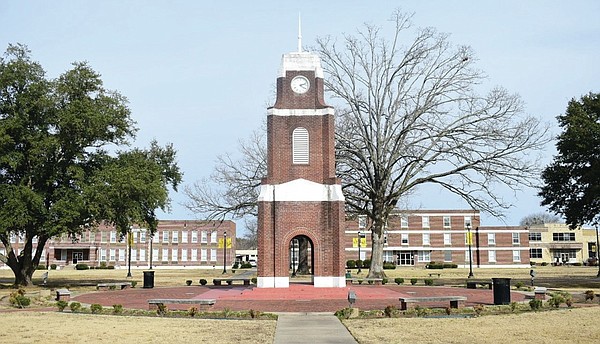Courtesy of the University of Arkansas at Pine Bluff
The U.S. Department of Agriculture (USDA) National Institute of Food and Agriculture (NIFA) has awarded the University of Arkansas at Pine Bluff (UAPB) over $2 million in grants for agriculture-related programs, Dr. Bruce McGowan, interim dean/director for the UAPB School of Agriculture, Fisheries and Human Sciences, said. The five UAPB projects being funded are part of NIFA’s 1890 Capacity Building Grants Program, which is designed to build capacity for teaching, research and Extension activities at the nation’s 1890 historically-Black land-grant universities.
“We at the UAPB School of Agriculture, Fisheries and Human Sciences are thrilled by this investment in the cutting-edge research and outreach efforts underway at our School,” Dr. McGowan said. “The capacity building grants will allow our scientists to make breakthroughs on projects related to timely issues in agriculture and aquaculture. The funding will also be instrumental in helping us train underrepresented and minority students for careers in food, agriculture, natural resources and human sciences.”
A Discovery Farms education center will be established on the UAPB campus as part of one of the five projects. The center will be a means of attracting underserved undergraduate students, as well as children and youth, to careers in agriculture. Both students and local producers will be trained in water conservation and other environmental practices at the center.
A project in the UAPB Department of Human Sciences aims to enhance the experiential learning of students through equipment and technology upgrades. This will include the adoption of state-of-the-art technology in the Child Development Center, upgrades to resources in the university’s quantity foods lab and enhancement of facilities to better market all academic programs in the department.
Another project aims to develop students into aquaculture/fisheries and Extension professionals. Student participants will have the opportunity to take part in in-house training, experiential learning, paid internships and conferences, as well as in collaborative opportunities with students and professors at other 1890 land-grant universities.
One project addresses one of the main causes of substantial fish losses in aquaculture practices – the buildup of toxic ammonia. Researchers will study catfish challenged with elevated environmental ammonia and other negative environmental factors to develop strategies to facilitate the elimination of ammonia.
The goal of a UAPB Department of Agriculture project is to develop an interdisciplinary research program on biochar and ecosystem sustainability in crop systems. Biochar – a charcoal made from biomass such as plant residue or animal byproducts – can be used as a soil amendment to capture agricultural chemicals (antibiotics or heavy metals) in the local environment. UAPB project data will be used to determine agricultural best management practices for the use of biochar on a large scale.
The funding UAPB received is part of a $33 million package to support capacity-building efforts at the 1890 land-grant universities.
“The work these universities will take on as a result of this funding have ripple effects far beyond the walls of their laboratories and classrooms,” Agriculture Deputy Secretary Xochitl Torres Small said in a press release. “Through this investment, the Biden-Harris administration is helping deliver real-life, applicable solutions to make our food system stronger, while at the same time inspiring a next generation of students and scientists who will help us meet tomorrow’s agricultural challenges.”
The University of Arkansas at Pine Bluff offers all its Extension and Research programs and services without regard to race, color, sex, gender identity, sexual orientation, national origin, religion, age, disability, marital or veteran status, genetic information, or any other legally protected status, and is an Affirmative Action/Equal Opportunity Employer.

